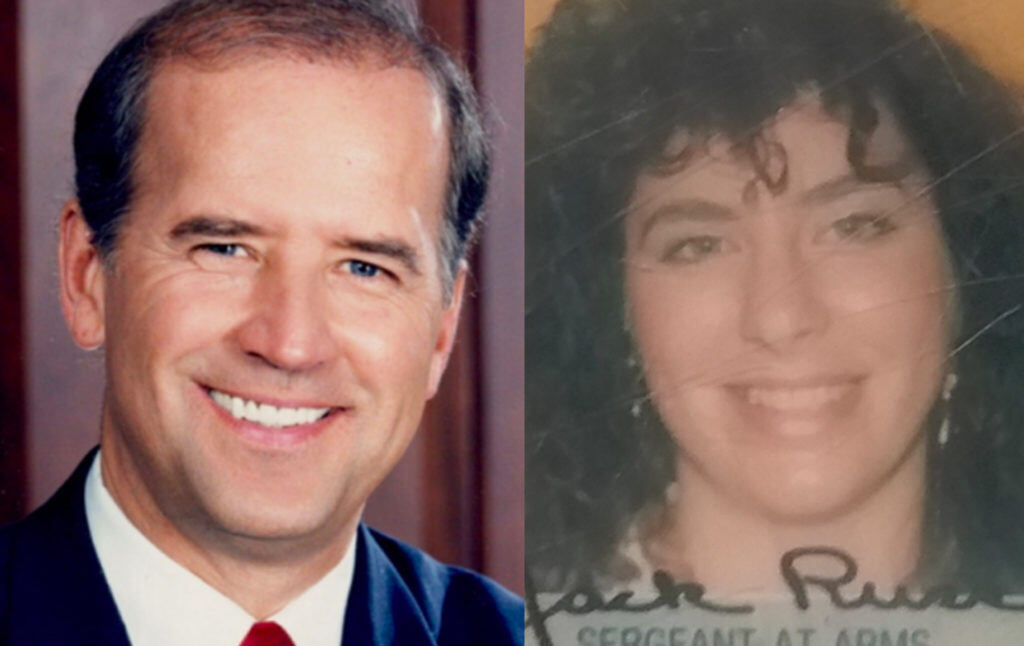... Marcotte repeatedly makes the very serious charge that Tara Reade has “changed” her story “so much in the past year.” But this is an unfair and inaccurate way to characterize what has happened. Reade did not originally disclose the full nature of what happened to her. In April 2019, when Lucy Flores spoke out about Biden touching her inappropriately, Tara Reade came forward to confirm that Biden had also done similar acts to her. Then, later, Reade said that there was more that she had not previously disclosed, namely a serious sexual assault. To see why this is not properly characterized as “changing her story,” imagine if I asked you: “How was your relationship with your employer?” and you said “It was rocky. He sometimes gave me… funny looks, and did things that made me uncomfortable, like patting me on the head.” Then, later, when you talked to someone else at more length, you admitted that there had been more, that the employer had assaulted you. An unfair person trying to discredit you (a la Marcotte) could characterize this as “changing your story.” But that’s the kind of aggressively uncharitable framing that the lawyer for your employer would use when cross-examining you (“AND WHY DID YOU CHANGE YOUR STORY?”) rather than the kind of framing we should use if we are trying, as Marcotte says she is, merely to get to the truth. Gradually opening up about the parts of your story that are the most difficult to tell is very different from altering it. The difference should be obvious, especially to someone who understands how survivors tell stories.
The other piece of evidence for Marcotte’s assertion that Reade has changed her story a lot is that Tara Reade once wrote a blog post in which she talked about leaving her DC job, and she does
not say it was because Biden sexually assaulted her. Again, someone trying to be fair to Reade, rather than trying to sow as many doubts as possible, would show an understanding of the fact that a woman who has been sexually assaulted by a prominent politician might not necessarily post about it on her public blog, and might emphasize the other reasons she left Washington. This stuff is
difficult to talk about, and an honest feminist writer would be taking great pains to help people understand why things that
look like they might be “changes” in a story aren’t necessarily changes at all, and might just reflect a growing level of comfort with being public about something very painful, something originally only disclosed in private to friends and family. Prof. Anthony Zenkus, an expert on sexual violence at the Columbia School of Social Work, shocked by Marcotte’s doubting of Reade’s sexual assault claim because she “changed” her story over time,
explains in an op-ed why the apparent contradiction is no contradiction at all:
In the sexual violence advocacy community, it is well understood that survivors take time to tell their full stories. At an advocacy agency where I was a director, a young girl who was sexually abused by a male relative told the police how he fondled her above her clothing. Months later, she spoke about the penetration. This is typical behavior for victims of trauma. Rarely does the story come out all at once. When Tara Reade joined other women in April of 2019 in speaking about how Biden put his hands on her and caressed her neck, she did not speak about the most horrific part of what had happened. The response from supporters of Biden was swift. Reade was criticized, her story dismissed, and her character attacked. It is clear why she wavered on coming forward with the most brutal details of her rape.
Marcotte, by failing to explain this, and instead using Tara’s gradual willingness to share more as “changing her story,” is discouraging her audience from thinking about how real world victims relay traumatic events. Prof. Zenkus notes that Tara’s story “has not changed. Details have been included now that Reade said she wasn’t comfortable including in the past.”
When I asked Tara’s friend Sarah about Tara’s willingness to come forward, she said that she had known Tara was not revealing everything, but said the decision was completely understandable to her. “I didn’t feel that it was my place when I spoke with reporters last year to say ‘Well if you think that’s bad, I even know more.’” In response to criticism of Tara’s timing, Sarah said “I’ve known this situation since 1993” and added that she had actually discouraged Tara from coming forward, because she didn’t think Tara would be safe, and “I know enough to know that when women do come forward even other women go ‘Really? Prove it. I need documentation… I just think we don’t want to admit that people are capable of bad, gross things.” She acknowledges that “a lot of people who are watching [Tara’s] media presence critically at the moment will probably wonder ‘Why is she jumping up and down now?’ [But] she’s been jumping up and down since it happened!” noting that Tara immediately told Sarah, her mother, and her brother.






